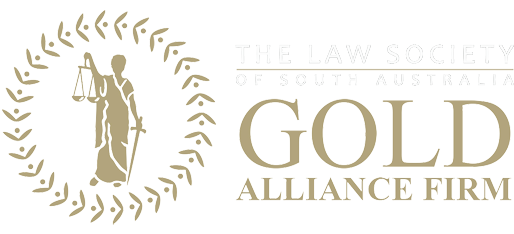Experienced Adelaide Dog Law: Defence Against Council Control & Destruction Orders
Have you received a notice from a South Australian Council regarding your dog or cat? Whether it’s an Intention to Make a Control Order or your beloved pet has been seized, you need urgent, experienced legal representation. At O’Toole Lawyers in Adelaide, we specialise in defending pet owners against Council actions under the Dog and Cat Management Act 1995 (SA).
Prompt action and obtaining expert advice is critical to protecting your animal, providing you with the best possible legal options, and preventing the most serious consequences.

Make an enquiry
Challenging Dog Destruction Orders and SACAT Appeals
A Destruction Order is the most serious action a Council can take, often sought after a serious attack on a person or another animal. If your dog has been seized by Council—often with Police in attendance—and is being held at a secure shelter like the AWL or RSPCA, time is extremely limited.
We are experienced in lodging documents and arguing for a Review to SACAT (South Australian Civil and Administrative Tribunal) to overturn the Destruction Order or have it downgraded to a Control Order. Securing our legal advice immediately is your dog’s best chance of avoiding euthanasia.
Defending Against Council Control Orders in South Australia
Receiving a notice for a Control (Dangerous Dog) Order, Control (Menacing Dog) Order, or Control (Nuisance Dog) Order can drastically change your dog’s life—and yours. A successful defence is vital to prevent severe, long-term restrictions.
We challenge the evidence and procedural fairness of the Council’s decision to fight for your dog’s freedom.
Consequences of some Control Orders
If a Control Order is imposed, the following flow-on consequences are common:
- Secure Confinement: The dog must be kept indoors or in an enclosure specifically constructed to prevent escape.
- Identification: Mandatory desexing and microchipping.
- Dangerous Dog Collar: At all times, the dog must wear a prescribed collar with diagonal bright red and yellow stripes to signify the order to the public.
- Restraint and Muzzling: Whenever not at home, the dog must be under the effective physical control of a person. For a Dangerous Dog Order, this includes having a muzzle securely fixed on its mouth.
- Prohibition on Running Free: Any Control Order (except a Barking Dog Order) will result in your dog being prohibited from running free at dog parks, beaches, or anywhere else outside the home.
- Warning Signs: Required warning signs must be displayed at all entrances to your home.
Legal Defence for Control (Barking Dog) Orders
While often perceived as less severe, a Control (Barking Dog) Order must be taken seriously. A breach of this order can be very serious, and in fact, criminal proceedings can be commenced against the owner. We advise on your legal obligations and represent you to prevent an escalation of this matter.
Cat Management Laws and Council Disputes
The Dog and Cat Management Act 1995 and local council by-laws also regulate cat ownership in South Australia. We assist with disputes related to cat management, including mandatory desexing, microchipping, and issues concerning wandering cats or limits on the number of cats kept on a property.
If your pet’s future is at risk, don’t delay. Contact the dedicated Adelaide Dog and Cat Law team at O’Toole Lawyers for immediate, expert legal advice. Call us today for a consultation.
This video discusses how Local councils are tightening cat ownership laws to protect native wildlife, which provides context on the regulatory environment O’Toole Lawyers operates within.
Adelaide Dog & Pet Law FAQ
1. My dog bit someone — what should I do?
Contact your local council immediately. You may face fines or prosecution under the Dog and Cat Management Act 1995 (SA). We can help you respond and appeal any decision.
2. Can the council take or destroy my dog?
Yes. Councils can seize dogs after an attack or if considered dangerous. You have the right to appeal before destruction occurs.
3. What are my responsibilities as a dog owner?
All dogs and cats must be microchipped, desexed (unless exempt), and registered via Dog and Cat Online (DACO).
4. How do I appeal a “dangerous dog” declaration?
You can apply for a review in the Magistrates Court within 14 days. We can represent you and prepare your case.
5. Who keeps the pet after a breakup?
Pets are considered property. Ownership depends on registration, purchase, and care records.
6. Someone else has my pet — what can I do?
If you can prove ownership, you can demand its return or take civil recovery action.
7. Can my landlord or strata ban pets?
They can, depending on your lease or by-laws. You may request written permission or negotiate terms.
8. My neighbour’s dog keeps barking or attacking — what can I do?
Report it to your local council. Councils can issue nuisance or control orders.
9. What are the rules for breeding or selling puppies?
Breeders must be DACO registered, display breeder numbers, and microchip/desex all puppies.
10. What rights do I have with an assistance dog?
Accredited assistance dogs have full access rights under SA and federal law.
11. Someone injured or killed my pet — can I claim compensation?
Yes. Negligence or intentional harm may entitle you to damages or prosecution.
12. How do I report cruelty or neglect?
Contact RSPCA SA (1300 477 722) or SAPOL for urgent cases.
13. Do I need a lawyer for a pet law issue?
If your pet has been seized, declared dangerous, or part of a dispute, get legal advice early.
![]() Download O’Toole Lawyers Adelaide Dog & Pet Law FAQ PDF (156kb)
Download O’Toole Lawyers Adelaide Dog & Pet Law FAQ PDF (156kb)



